Water is one of the most destructive enemies for the homes interiors. Whether it’s a bathroom, a busy kitchen, a damp basement, or a laundry room, wet areas in your home demand special attention especially when it comes to flooring. A well designed flooring not only helps protect your home from water damage, but also increases its aesthetic and worth.
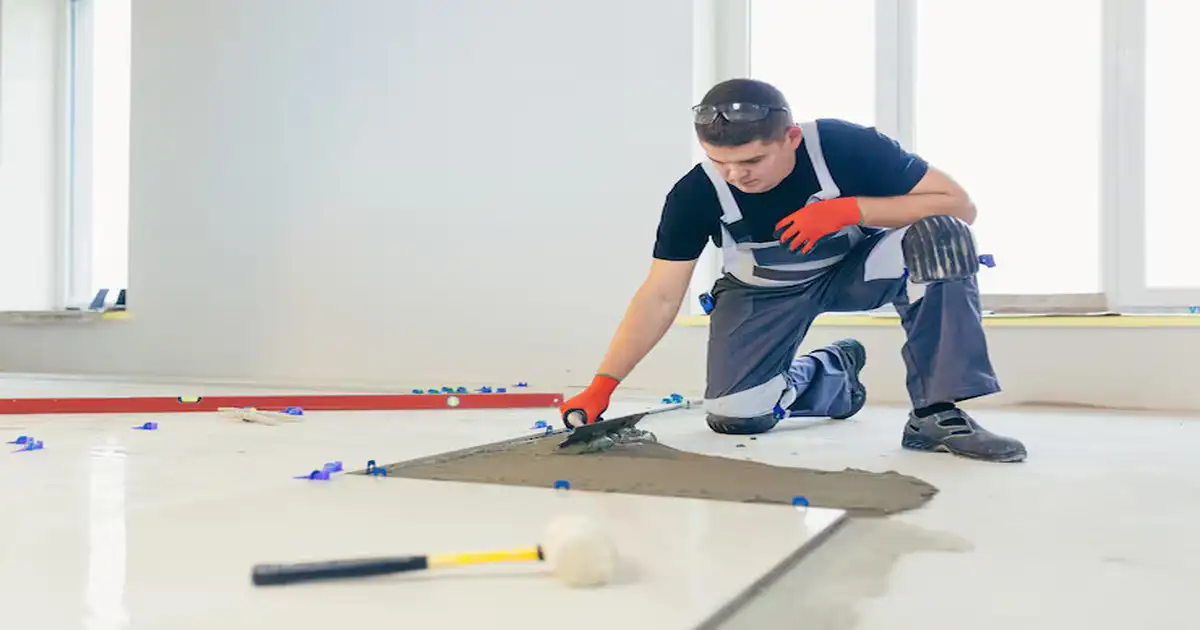
In this thorough guide, we’ll go over all you must learn about waterproof flooring options for areas that are wet. From understanding the various kinds of waterproof flooring, to looking at costs, installation methods and tips for maintenance This article can help you make an informed choice when it comes to your next project or renovation construction.
What is Waterproof Flooring?
Waterproof flooring can be described as any type of flooring material that is indestructible to water permeation. Contrary to flooring that is water-resistant that is able to withstand minor moisture and spills for a short time the waterproof flooring is constructed to keep water from getting through, even after long exposure.
Key Features of Waterproof Flooring:
- Non porous surface: Blocks absorption of water.
- Seams and edges sealed: Stop water from leaking under the surface.
- Sturdy construction: It resists swelling swelling, and the growth of mold.
Water Proof Vs Water Resistant Flooring
- Waterproof: Can withstand large spills and standing water without causing damage.
- Water resistant: Resists water for a brief period but can be damaged by exposure for a long time.
Why Waterproof Flooring is Essential for Wet Areas
Wet areas are more susceptible to splashes, spills, humidity and even flooding. If you choose the wrong flooring for these areas can result in:
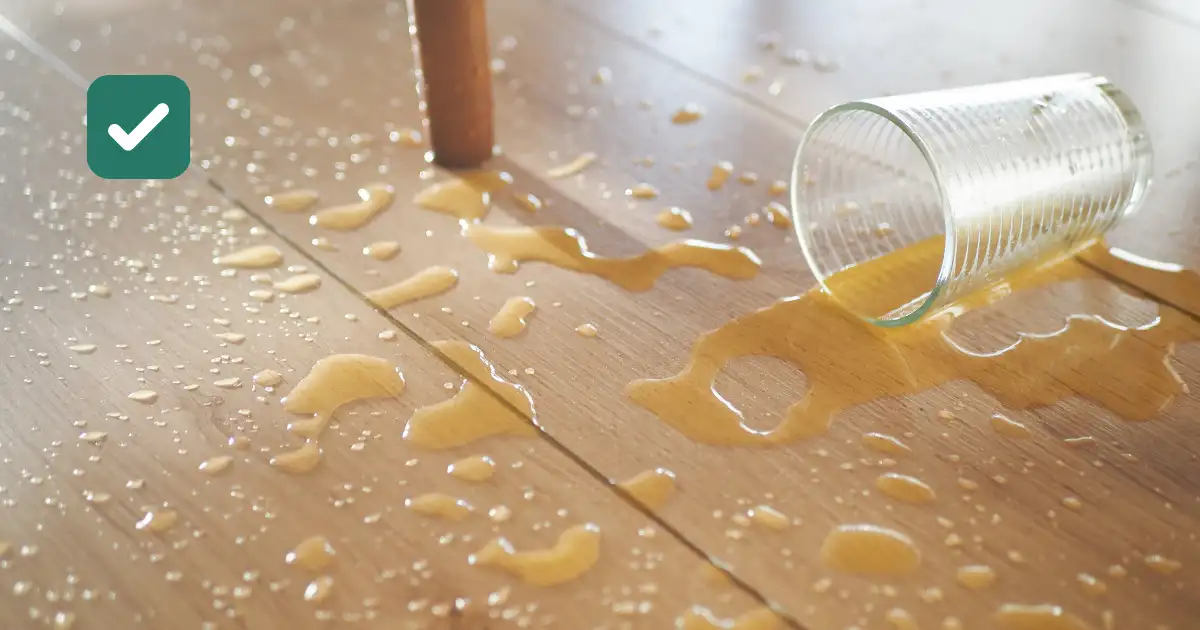
- Buckling and warping
- The growth of mildew and mold
- Discoloration and staining
- Subfloors are damaged due to structural damage.
Common Wet Areas in Homes:
- Bathrooms
- Kitchens
- Basements
- Laundry rooms
- Entryways and rooms with mudrooms
Benefits of Waterproof Flooring:
- Peace of mind: You don’t have to worry about spills or leaks that might happen.
- Easy maintenance: Easy to clean and disinfect.
- Beauty that lasts: Keeps its appearance throughout the course of time.
- Healthy environment: Reduces the chance of allergens and mold.
Types of Waterproof Flooring Solutions
Let’s take a look at the most well-known and efficient floors that are waterproof for your wet environments:
Luxury Vinyl Plank (LVP) and Tile (LVT)
Vinyl flooring that is luxurious and durable are among the most well known choices for waterproof flooring. It is akin to stone or wood, but is made of artificial materials which are impervious to water.
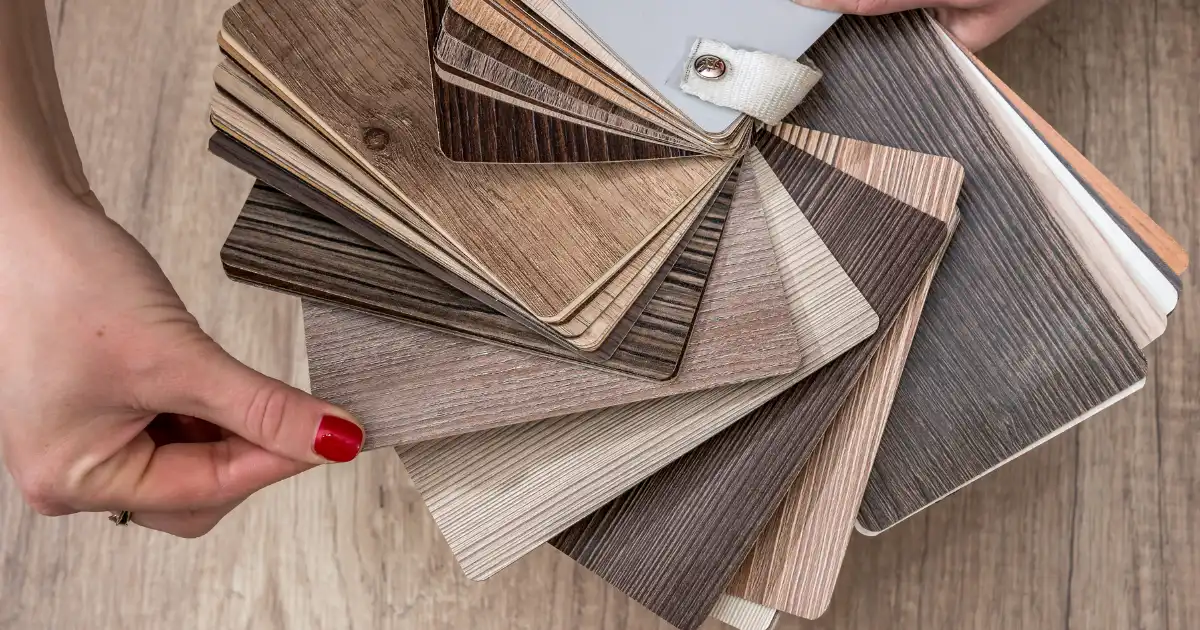
Pros:
- Realistic appearance.
- Soft and warm beneathfoot.
- Installation is simple.
- Affordable.
Cons:
- It is possible to become punctured when sharp objects
- Lower end products can off gas VOCs
- Ideal for bathrooms basements, kitchens, basements laundry rooms
Porcelain and Ceramic Tile
Ceramic tiles and porcelain are the most popular choices for areas that are wet. They are made of clay fired and are naturally waterproof when installed correctly and grouted.
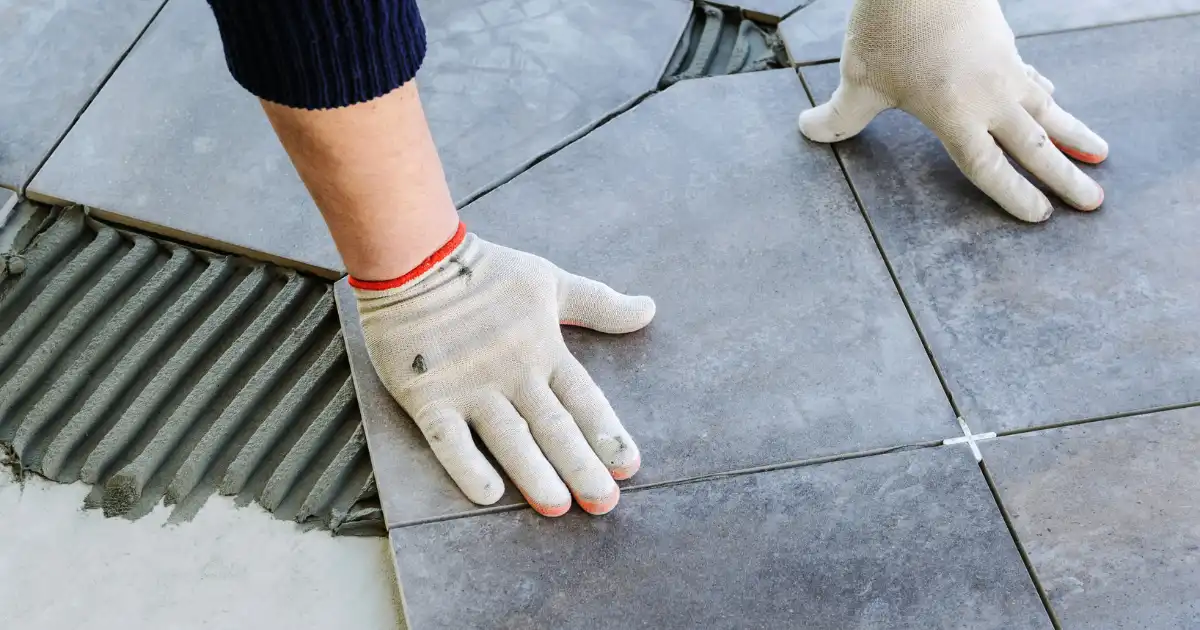
Pros:
- Extremely robust.
- A wide range of colors and styles.
- Resistant to scratches and stains.
Cons:
- Cold and hard beneathfoot.
- Grout lines need to be sealed and maintenance.
Sheet Vinyl Flooring
Sheet Vinyl is a flexible, continuous sheet that is totally waterproof. It’s typically used in commercial settings, but it’s ideal for residential and wet areas.
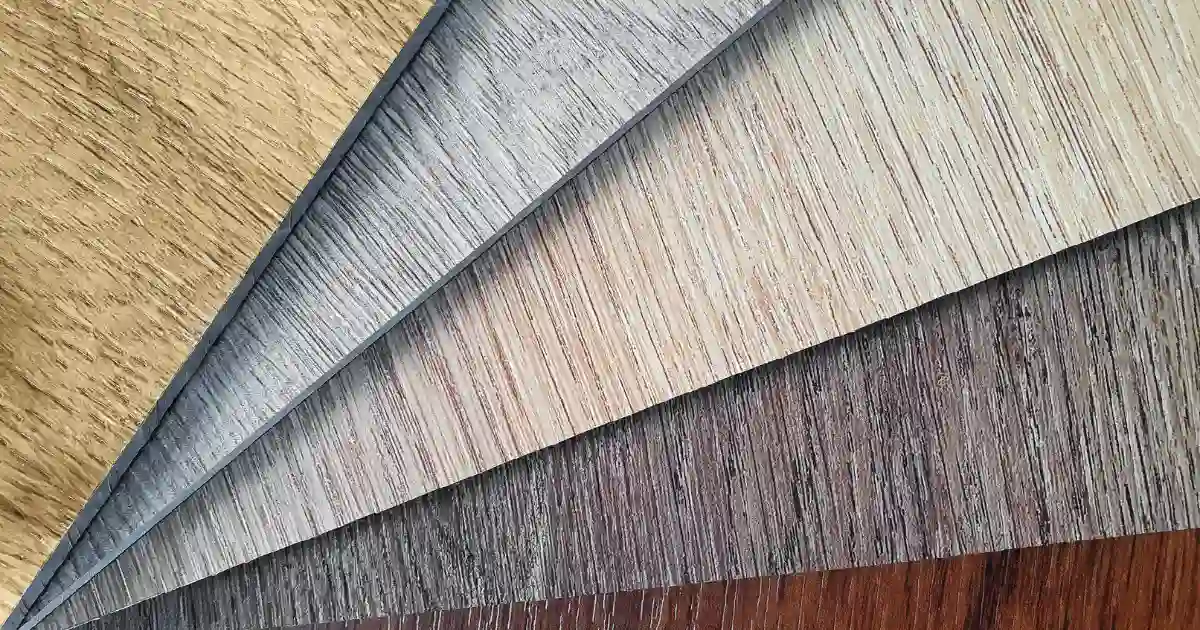
Pros:
- Installation seamless.
- Soft and comfy.
- Budget friendly.
Cons:
- Damage can be caused by sharp objects.
- The design options are limited when compared with LVP/LVT.
Waterproof Laminate Flooring
Traditional laminates are not waterproof, but the latest laminates that are waterproof come with a sealed core and locks that are tight to prevent water infiltration.
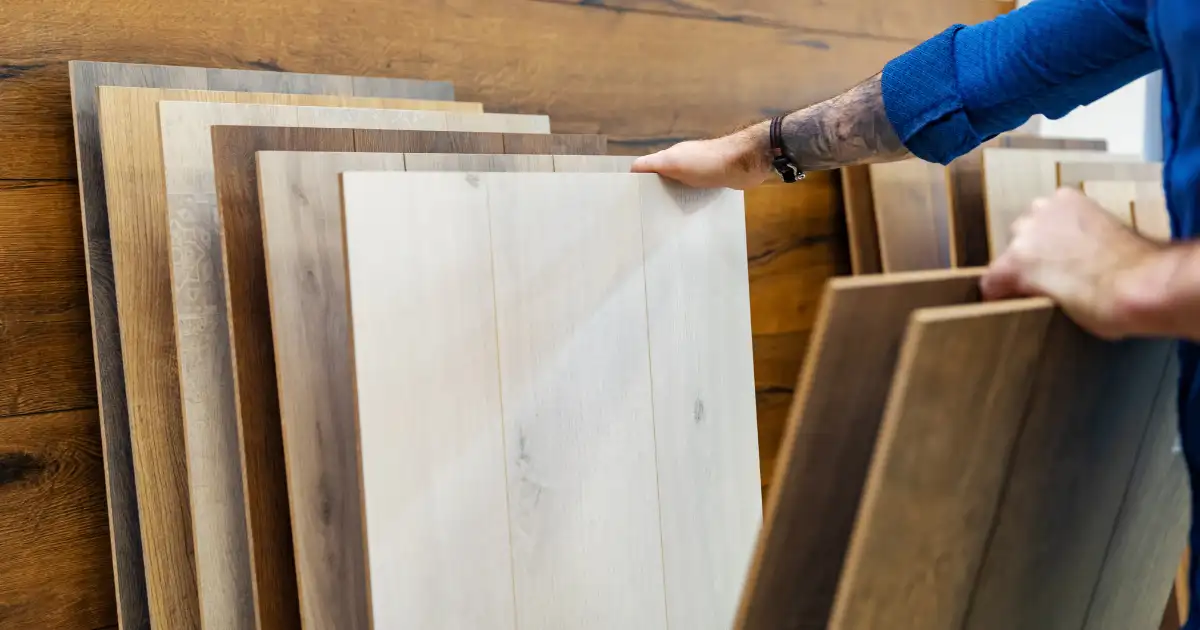
Pros:
- It looks like real wood.
- Installation is simple and easy to do.
- Much more affordable than hardwood.
Cons:
- It is not always waterproof. Make sure to check the specifications of the laminate.
- It can be slippery when wet.
Natural Stone Flooring
Natural stones such as granite, slate, and marble are naturally water-resistant however, they require sealing to make them fully waterproof.
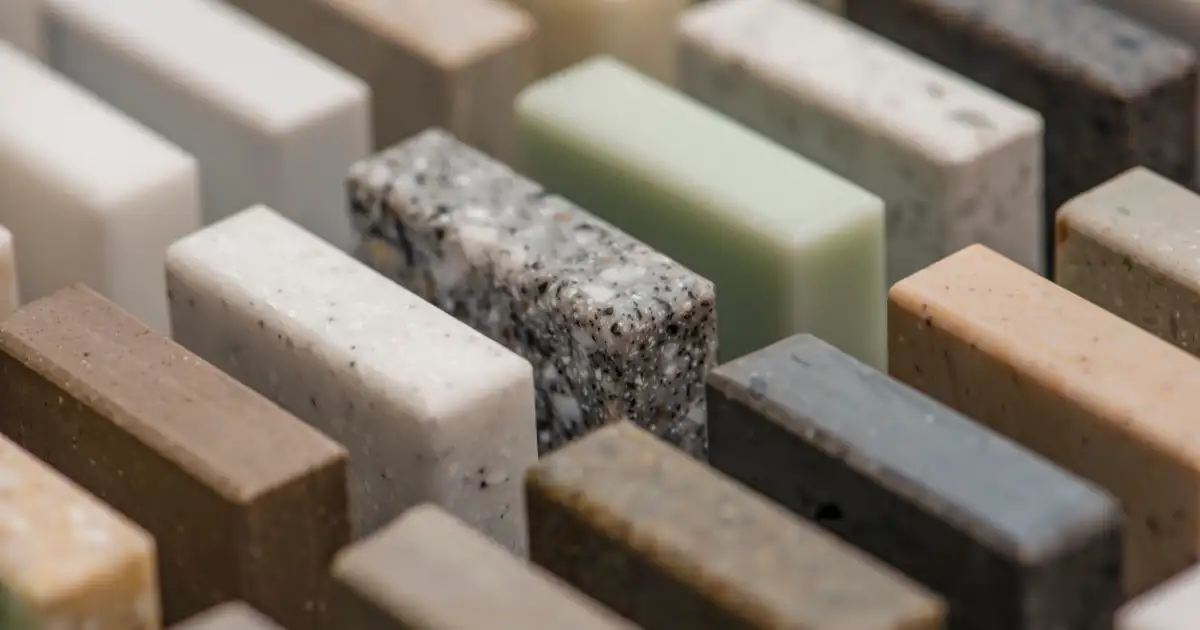
Pros:
- A timeless, luxurious look.
- Extremely robust.
- It adds value to your house.
Cons:
- Expensive
- It requires regular sealing
- They can be slippery and cold.
Concrete Flooring
Concrete is waterproof once properly sealed. It’s a preferred choice for industrial-style homes and basements.
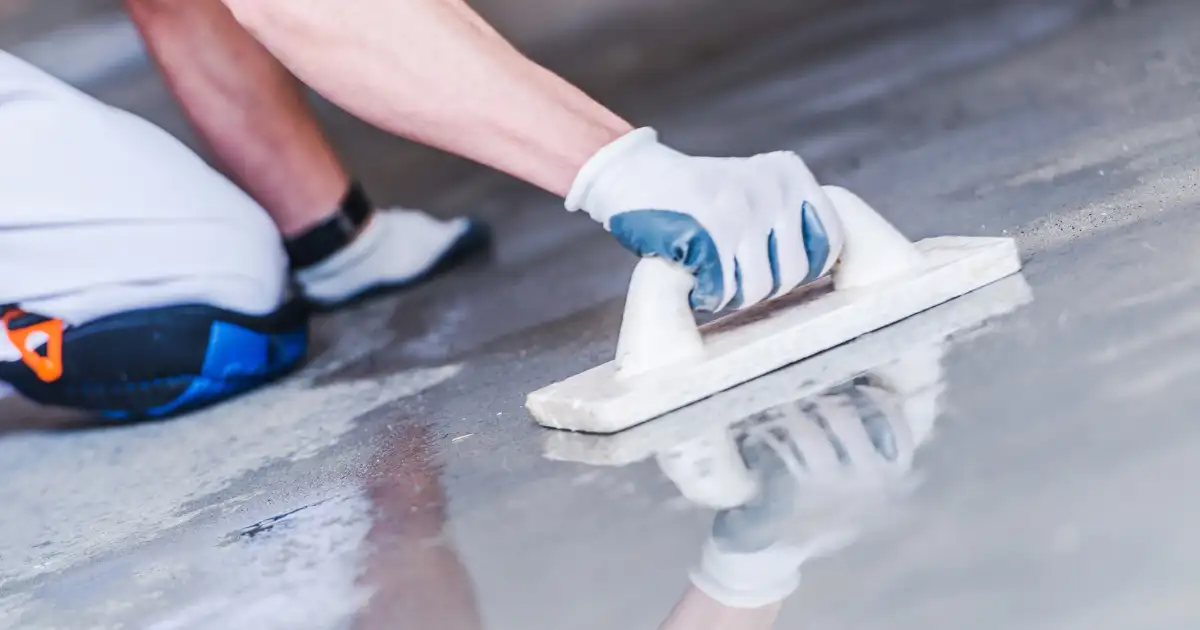
Pros:
- Extremely robust.
- It is customizable with finishes and stains.
- Low maintenance.
Cons:
- Cold and hard underfoot.
- Can crack over time.
Rubber Flooring
The flooring made of rubber is typically employed in gyms as well as commercial kitchens. However, it’s also a fantastic waterproof option for homes with wet areas.
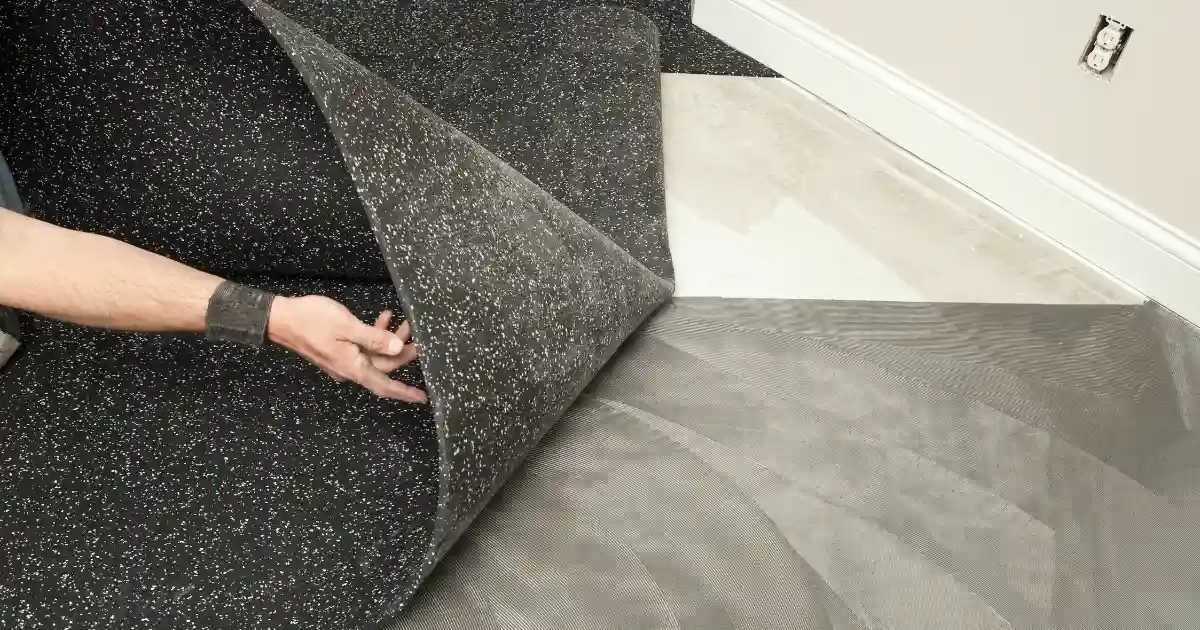
Pros:
- Soft and non slip.
- Absorbs noise and impact.
- Easy to wash.
Cons:
- Limited design options.
- It may smell like rubber at first.
Engineered Hardwood (Waterproof Varieties)
Traditional hardwood isn’t suitable for areas with water However, some engineered hardwoods are made to be water proof.
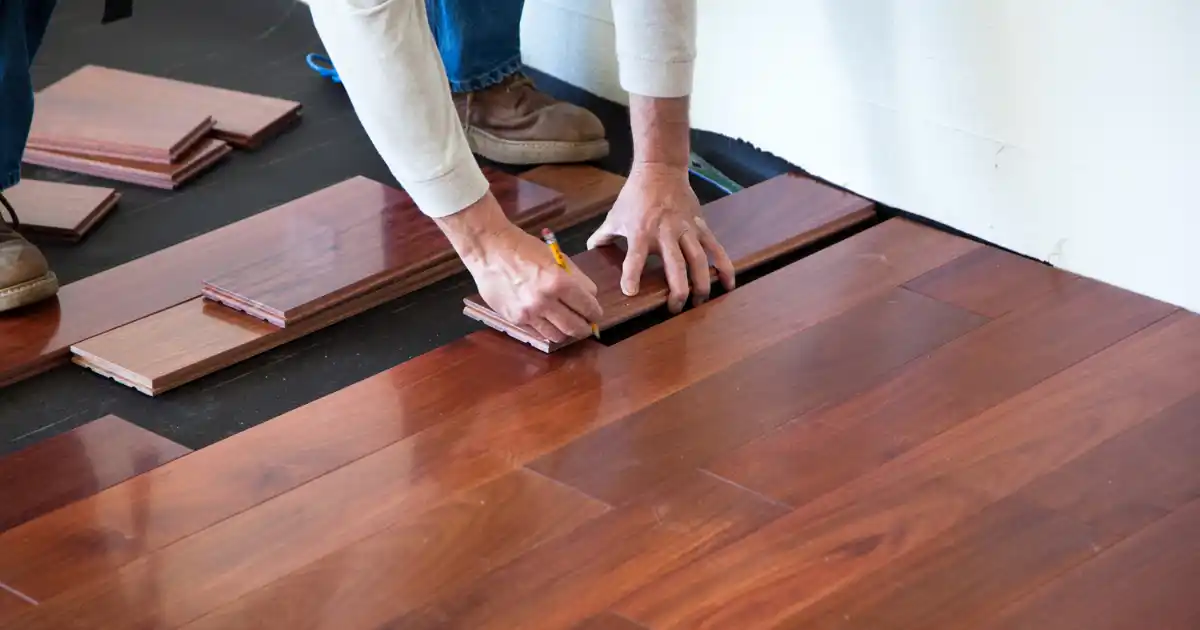
Pros:
- Real wood veneers for a real appearance.
- More Stable than solid hardwood.
- Certain products are completely waterproof.
Cons:
- Much more expensive than vinyl or laminate
- It is not the case that all engineered hardwoods are waterproof.
Cost of Waterproof Flooring by Type
| Flooring Type | Average Cost per Sq. Ft. (Material Only) |
|---|---|
| Luxury Vinyl Plank/Tile (LVP/LVT) | $2 – $7 |
| Porcelain/Ceramic Tile | $3 – $10 |
| Sheet Vinyl | $1 – $4 |
| Waterproof Laminate | $2 – $6 |
| Natural Stone | $5 – $20+ |
| Concrete | $2 – $8 |
| Rubber Flooring | $3 – $12 |
| Engineered Hardwood (Waterproof) | $6 – $15 |
Cost of Waterproof Flooring by Room Size
| Flooring Type | 100 sq. ft. | 250 sq. ft. | 500 sq. ft. |
|---|---|---|---|
| LVP/LVT | $200–$700 | $500–$1,750 | $1,000–$3,500 |
| Tile | $300–$1,000 | $750–$2,500 | $1,500–$5,000 |
| Sheet Vinyl | $100–$400 | $250–$1,000 | $500–$2,000 |
| Laminate | $200–$600 | $500–$1,500 | $1,000–$3,000 |
| Stone | $500–$2,000 | $1,250–$5,000 | $2,500–$10,000 |
| Concrete | $200–$800 | $500–$2,000 | $1,000–$4,000 |
| Rubber | $300–$1,200 | $750–$3,000 | $1,500–$6,000 |
| Engineered Hardwood | $600–$1,500 | $1,500–$3,750 | $3,000–$7,500 |
Factors Influencing Waterproof Flooring Costs
- Material Quality: Brands that use top quality and durable materials will cost more.
- Installation Complexity: Intricate patterns, subfloor preparation and removal of flooring can all increase the cost of labor.
- Space Dimensions and Forms: Larger rooms or those with irregular shapes require more resources and labor.
- Sublayment and other Accessories: Trims for moisture barriers adhesives, underlayments, and trims can increase costs.
- Location: Urban areas and markets with high demand could have higher labor rates.
- Brand and Warranty: Product warranties that are longer or manufactured by brands that are popular can be more expensive.
Installation of DIY vs Professional
DIY Installation
- Pros: Saves money, flexible timing, a feeling of achievement.
- Cons: Potential for errors, which could void warranty, and can be time consuming.
Best DIY Options are LVP/LVT, sheet vinyl rubber tiles, waterproof laminate.
Professional Installation
- Pros: High quality finish, Warranty protection, quicker time to complete.
- Cons: More expensive upfront cost.
The best choice is tile Concrete, stone big or complicated rooms.
Maintenance and Longevity
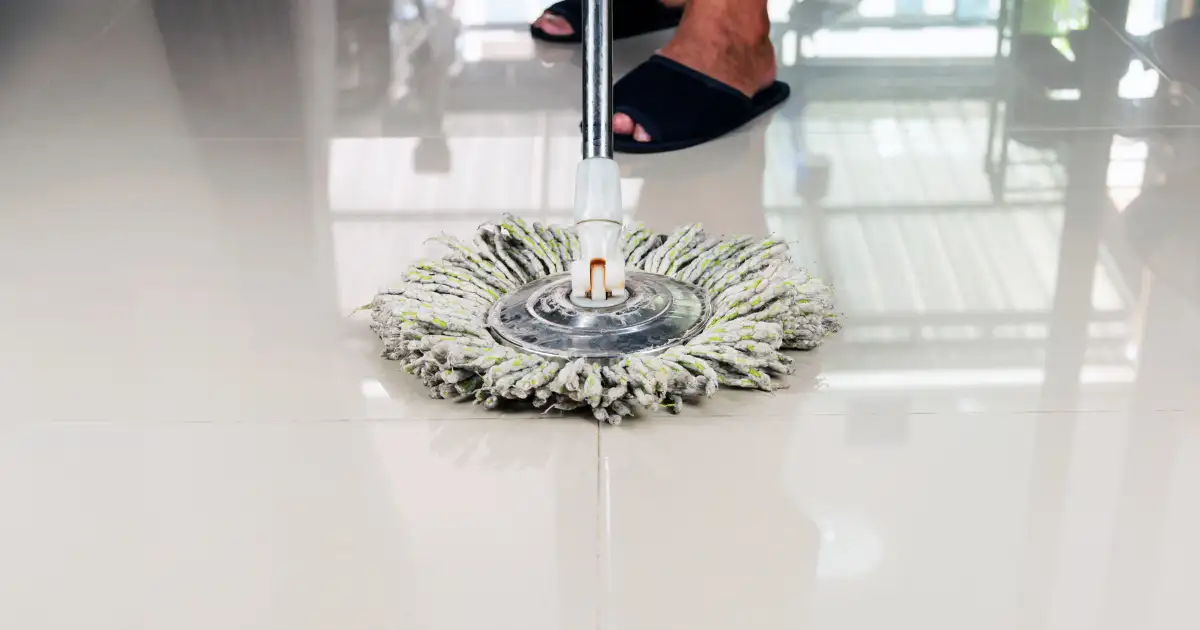
General Maintenance Tips:
- Mop and Sweep Regularly: This prevents the accumulation of dirt, grit and dust from scratching your surface.
- Clean up Spills Quickly: Even floors with waterproofing are benefited by quick cleanup.
- Use the Appropriate Cleaning Products: Beware of harsh chemicals that may cause damage to the surface.
- Cover Grout Lines and Stones: Keep the waterproofing of stone and tile flooring.
Expected Lifespan by Flooring Type
| Flooring Type | Average Lifespan |
|---|---|
| LVP/LVT | 10–20 Years |
| Porcelain/Ceramic Tile | 20–50 Years |
| Sheet Vinyl | 10–20 Years |
| Waterproof Laminate | 10–15 Years |
| Natural Stones | 50+ Years |
| Concrete | 20–50 Years |
| Rubber Flooring | 10–20 Years |
| Engineered Hardwood | 20–30 Years |
Best Waterproof Flooring for Each Wet Area
| Area | Top Selections | Reasons |
|---|---|---|
| Bathrooms | Ceramic tile, porcelain, LVP/LVT, natural stone, sheet vinyl | High water content, frequent spills, need for quick cleaning |
| Kitchens | LVP/LVT, tile, waterproof laminate, engineered wood (waterproof) | Spills, food messes, heavy foot traffic |
| Basements | LVP/LVT, sheet vinyl, rubber flooring, sealed concrete | Prone to humidity, flooding, temperature variations |
| Laundry Rooms | Sheet vinyl, LVP/LVT, rubber flooring, tile | Risk of detergent spills, leaks, heavy appliances |
| Mudrooms & Entryways | Tile, LVP/LVT, rubber flooring, natural stone | Wet shoes, dirt, outdoor debris |
Common Mistakes to Avoid
1. Choosing Water Resistant Instead of Waterproof
Water-resistant floors may not stand up to high-intensity spills or standing water. Always choose true waterproof flooring for wet areas.
2. Ignoring Subfloor Preparation
Uneven or damp subfloors can compromise waterproofing and lead to future problems. Always prepare your subfloor properly before installation.
3. Skipping Professional Installation for Complex Materials
Incorrect installation can cause leaks and damage. For tile, stone, or concrete, professional installation is best.
4. Neglecting Grout and Sealing
Unsealed grout or stone can absorb water and lead to mold. Always seal grout and stone as recommended.
5. Using the Wrong Cleaning Products
Harsh chemicals can damage protective coatings and the floor itself. Use manufacturer-recommended cleaners for best results.
6. Not Checking Warranty Terms
Some warranties require professional installation or specific maintenance. Always read and follow your warranty terms to avoid voiding coverage.
Conclusion
The best flooring for wet areas is an important choice that can ensure the security and appearance of your home. With a range of options from stylish vinyl and tiles to rubber and engineered hardwood there’s a flooring solution for every budget, size, and need. By understanding the pros, cons, costs, and best uses of each type, you can select the most suitable flooring for your kitchen, bathroom, laundry room, basement, or mudroom.
Remember, proper installation and maintenance are just as important as the flooring itself. Whether you’re a DIYer or hiring a professional, following best practices will ensure your floors stay waterproof and last for many years.
FAQs
1. What is the best water-proof bathroom flooring?
Ceramic tile or porcelain is usually considered to be the most durable and waterproof bathroom option, but luxury vinyl sheets or plank vinyl are excellent options.
2. Do I need wood flooring when I am in an area with a lot of water?
Traditional hardwood is not suitable for regions with high humidity; however, certain engineered wood products are constructed to be water-proof. Always check all the specs of any manufacturer.
3. Do waterproof laminates last?
It’s not true that all laminates are waterproof. Only those that are specifically labeled as “waterproof laminate” offer true protection against water. Always verify before purchasing.
4. What can I do to keep my flooring that is waterproof?
Regular sweeping and mopping, immediate cleanup of spills, and using manufacturer-recommended cleaners will keep your floors in top shape. For tile and stone, seal the grout and surfaces when needed.
5. What’s the best flooring choice for a basement susceptible to flooding?
Sheets of luxury vinyl, planks of vinyl flooring, rubber flooring, or concrete sealing are ideal options for basements as they can withstand water and are easy to maintain.
6. Do I have the ability to install flooring that is waterproof on my own?
A variety of flooring options, including waterproof flooring such as LVP/LVT or sheet vinyl, can be installed by hand. But tiles, stone, and concrete ought to be left for the experts to ensure the most effective results.
7. What’s the average cost for waterproof flooring?
Costs vary widely depending on the material, the quality, and the installation. Expect to pay anywhere from $1–$20 per square foot of materials, as well as for the installation.
8. Do I require a moisture-proof barrier under waterproof flooring?
In certain circumstances, specifically in areas with concrete subfloors, as well as in basements, the installation of a moisture barrier is suggested to prevent the flow of vapors.
9. Are there alternative flooring materials that are sustainable and waterproof?
Yes! Certain luxury vinyl products are constructed using recycled materials. Stone is a natural and green alternative. It is possible to search for certifications like FloorScore and GreenGuard.
10. How long will waterproof floors last?
If properly maintained, the majority of waterproof flooring will last between 10 and 50 years depending on the material.
